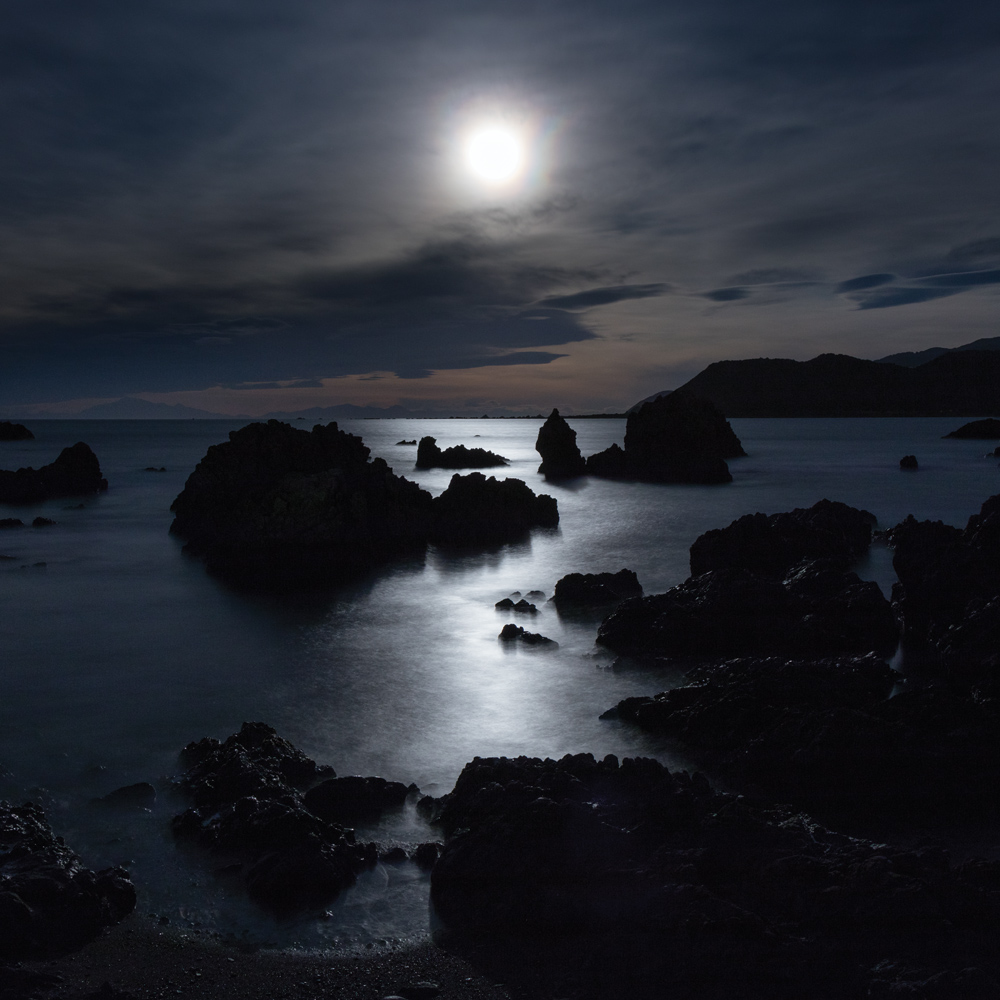moon·gleyd | /mun gleɪd/

Moonglade is a poetic blend for the shimmering line of the moonlight’s reflection on water. It’s first use is credited to the 19th century American poet and diplomat James Russell Lowell.
English sailors are thought to have coined the term moonwake, reflecting how the light mimicked the white wash of a ship’s wake. The Swedes call it mångata, meaning the moon road. The Turkish gumusservi compares the tapered reflection to a silver cypress tree upon the water.
In Latin, the dulcet marmoris describes the shining surface of the sea, although not necessarily under moonlight. It stems from marmor, meaning marble, as in the marbling of the water’s surface.
The meanings of both moon and glade have shifted over time. In Middle English, glade didn’t just refer to a clearing in woodland. It could also describe a bright patch in a cloudy sky. Earth’s Moon, known as Luna in Latin and Selene by the Greeks, was named before more moons were discovered orbiting other planets, after which it evolved into a generic term for any planet’s natural satellites, which some argue has left our Moon nameless.
Japan’s springtime tradition of hanami (flower viewing) is complimented by tsukimi, the moon viewing festival of autumn. During tsukimi, observers may contemplate the melancholy proverb “mirror flower, water moon” (kyoka suigetsu), which speaks of something desirable you can see but never reach – like a flower in a mirror or the Moon over water.
Introduction Aeolian Alpenglow
Benthos Crepuscular Crispate Crown shyness
Desire lines Dreich Endragoned Edgelands
Frondescence Fumarole Gluggaveður Gossamer
Karst Komorebi Lawrence Long acre
Machair Monkey’s wedding Moonglade
Psithurism Quartz Rakuyou Roaring forties
Snag Soft estate Specular, diffuse and pellucid
Spoondrift Steam fog Swash zone Sylvan